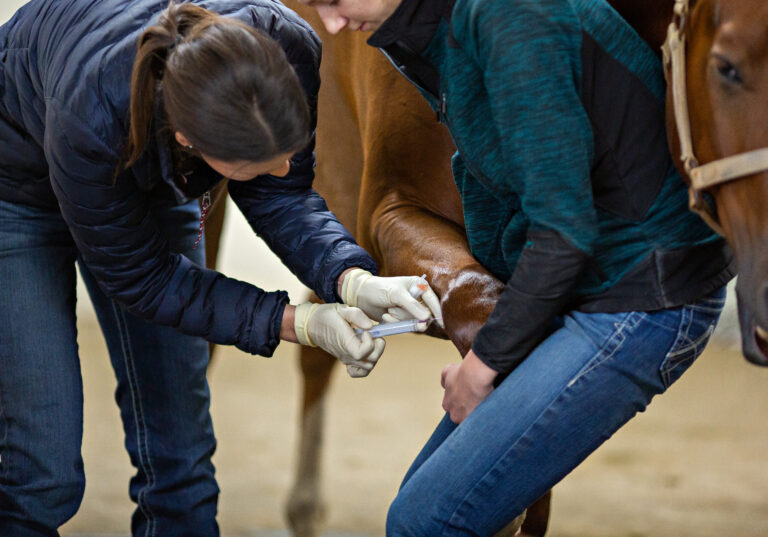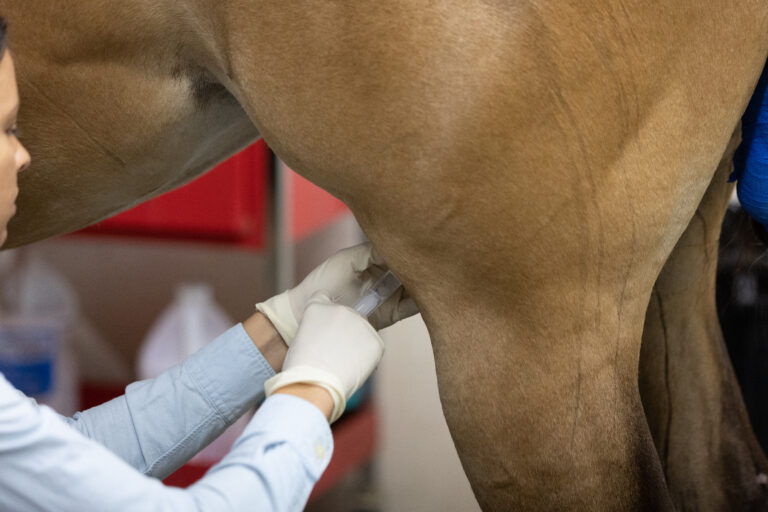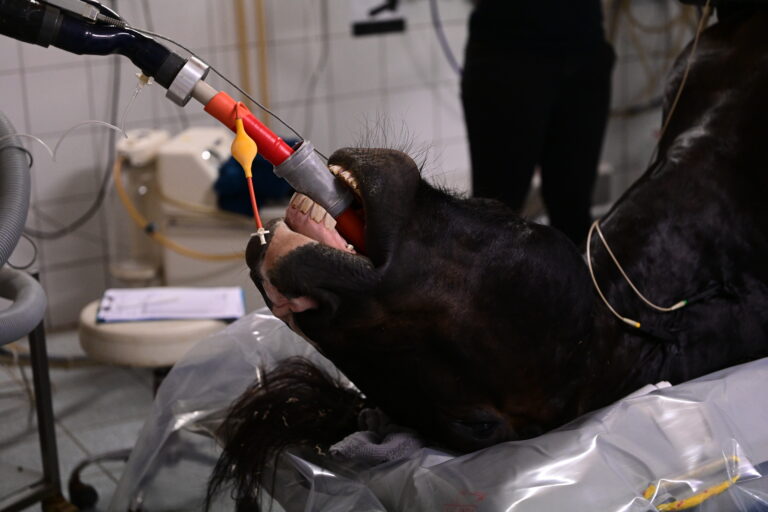
Mare and foal survival are increased with prompt dystocia management. Data regarding mortality outcomes in mares and foals, when mares are recumbent at admission for dystocia resolution, are scarce. The aim of this retrospective cohort study was to evaluate recumbency at hospital admission as a risk factor for survival of mares and foals following dystocia management. Subsequent mare fertility was also evaluated.
Data were obtained from medical records at Rood and Riddle Equine Hospital of mares with dystocia between 1995 and 2018. Mare signalment, ambulation status, survival data and foaling records were collected. The proportion of mare survival and mare fertility were analyzed using chi-squared tests. Foal survival was analyzed using Fisher’s exact test. Odds ratios were calculated using multivariable logistic regression.
There were 1038 ambulatory mares and 41 recumbent mares included in the analysis. Survival rates after resolution were 90.5% (977/1079) in mares and 37.3% (402/1079) in foals. Ambulatory mares had higher odds of survival (OR 6.93, 95% CI: 3.25–14.78, p < 0.001) than recumbent mares. Foals delivered from ambulatory mares had higher odds of survival (OR 22.7, 95% CI: 3.11–165.44, p = 0.002) compared with foals delivered from recumbent mares. Fertility was not statistically different for surviving Thoroughbred mares within 3 years following resolution between ambulatory and recumbent mares.
Bottom line: Mare and foal survival was significantly decreased when mares with dystocia were recumbent at hospital admission, but subsequent mare fertility was not affected by ambulatory status.




